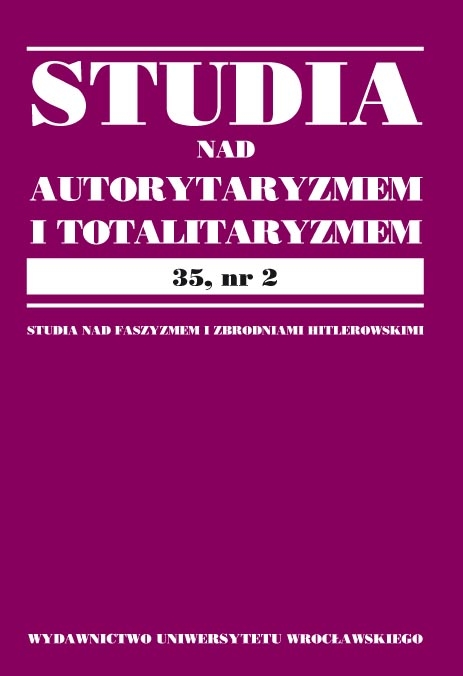

Articles

WILHELM MARR 1819–1904 AS THE “PATRIARCH” OF GERMAN ANTI-SEMITISM
Wilhelm Marr 1819–1904, called “the patriarch of Anti-Semitism,” is the author of the neologism which has found its place in every language of the world, meaning the term Antisemitismus. He used it for the first time in his major book titled Der Sieg des Judenthum über das Germanenthum 1879. In the first part of this article the author puts forward a supposition that cultural pessimism Kulturpessimismus cannot be seen as a key to the understanding of Marr’s political thought even though his writings certainly subscribe to this viewpoint. Such an interpretation of Marr’s conceptions is negated by an intellectual provocation through which Marr, overemphasizing the humiliation of his compatriots “Vae Victis! Finis Germaniae!”, attempts to mobilize them for a relentless and uncompromising struggle for the homogeneous nation-state. In the following parts of the article the author presents Marr’s approach to the question of religion in a racial context and the latter’s opinions on the potential assimilation of “Israel” and some “dangers” apparently connected to this process. As an atheist and an empiricist Marr was unfavorably disposed towards religion. He mocked the Anti-Semitism of “previous ages” meaning Anti-Judaism and its accusations concerning the so-called Jewish Deicide Gottesmord, alleged ritual murders Ritualmorde or an alleged practice of stealing and desecrating the Host. He claimed that the true peril to the German element may be truly and rationally conceived only in racial categories. It was because of those reasons that Marr did not perceive any possibility of the integration of Jews into the German society. Simultaneously, Marr did not hesitate to praise Jews for the enterprising spirit and was even mentioning the natural Jewish right to self-defense. Marr expected that his work would be continued by Johannes Scherr 1817–1886, a historian of culture. However, contrary to his intentions, Marr’s thought was actually developed by his one-time student Theodor Fritsch 1852–1933, who was later conflicted with his master, in his works titled Antisemiten-Katechismus 1887 and Handbuch der Judenfrage 1907. At the moment of Fritsch’s exposition the German Anti-Semitism concluded its long way from “utopia” to “science.”